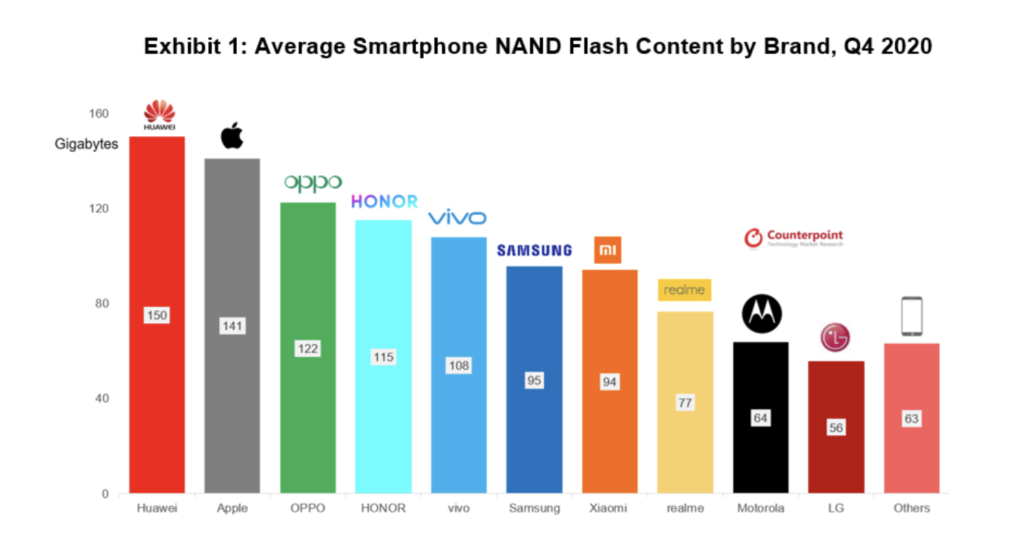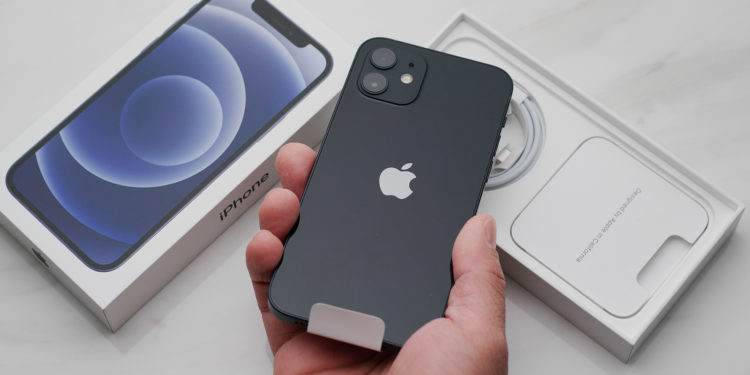A new study shows that consumers have been demanding more storage capacity in their smartphones in recent years. iPhone users, for example, tend to buy models with higher storage capacities. Android users, on the other hand, behave differently. Interestingly, there is currently speculation about whether Apple will give the iPhone 13 a 1TB storage option.
A report published by Counterpoint Research states that the smartphone industry surpassed the 100 GB mark for average storage capacity in 2020. Apple is the second company where users demand higher storage options, with an average of 141 GB on the iPhone. Huawei leads the way with an average of 150 GB. The report states:

iPhone 13: Base model could get 128GB storage
With their higher price point, iPhones have historically maintained a much higher average NAND flash density compared to their Android counterparts. However, this gap is rapidly narrowing due to Apple's decision to cap the iPhone 12's storage at 512GB and rapidly increasing storage capacities on Android smartphones, as shown by our historical data and smartphone storage forecasts for the period 2018-2024.
Between 2019 and 2020, Apple's 128GB models saw year-on-year growth in shipments, while 64GB models saw a 1% decline over the same period. The 64GB iPhone 11, XR, and 11 Pro Max are believed to account for half of Apple's shipments in 2019-2020. Since Apple currently sells 128GB, 256GB, and 512GB iPhone 12 Pro models, this year's iPhone 13 could expand the base model to 128GB, replacing the entry-level 64GB version. Counterpoint explains that 128GB could quickly become the minimum standard for storage capacities in the mid- to high-end market segment. So it remains to be seen whether Apple will follow suit this year. (Photo by leungchopan / Bigstockphoto)





